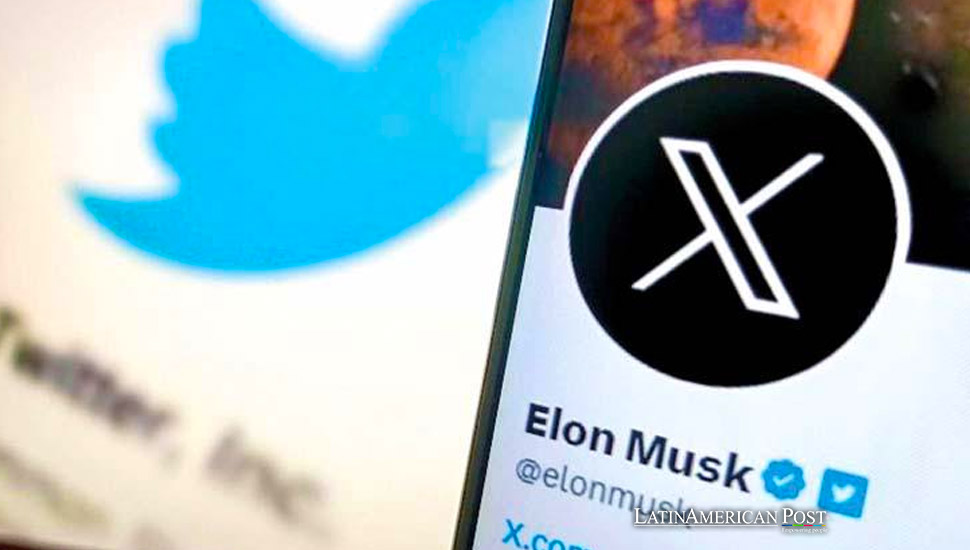Brazil vs. Musk: Starlink and X in Legal Limbo

As the Supreme Court cracks down on hate speech and misinformation, Elon Musk’s businesses, Starlink and X, face mounting challenges in Brazil. Musk’s legal battles highlight the complex relationship between foreign companies and Latin American governments.
The intersection of technology, politics, and the law has taken a sharp turn in Brazil, where Elon Musk’s ventures face increasing scrutiny. For months, Musk’s social media platform X (formerly known as Twitter) has been locked in a battle with Brazil’s highest court over allegations of hate speech and misinformation. But what started as a dispute over content moderation now draws in Musk’s other business interests, namely SpaceX’s Starlink satellite internet service.
This high-stakes legal drama raises broader questions about the challenges foreign technology companies face when operating in Latin America, a region with its own regulatory dynamics and political complexities. The ongoing conflict between Musk’s companies and the Brazilian authorities is emblematic of these tensions, with potential repercussions for other regional international businesses.
Musk’s Legal Battles in Brazil
Elon Musk’s legal battle with Brazil began earlier this year when the country’s Supreme Court ordered X to remove multiple accounts spreading what it deemed to be hate speech and misinformation. In August 2024, X announced the closure of its operations in Brazil, citing concerns for the safety of its staff amid mounting pressure from the court. However, the decision to pull X from the Brazilian market was only the beginning of Musk’s troubles in the country.
In September, the court escalated the situation by banning X from operating in Brazil entirely and demanding that the platform comply with legal requirements such as paying fines and appointing a legal representative. Brazil’s actions have drawn attention to the delicate balance between free speech and content regulation, particularly in a nation still reeling from its political polarization following Jair Bolsonaro’s presidency.
However, the most surprising twist in this saga came when the court targeted Musk’s satellite internet company, Starlink. The court froze Starlink’s finances in Brazil and blocked its ability to conduct financial transactions. The ruling stated that Starlink, as part of Musk’s business empire, should be held accountable for the fines levied against X. The entanglement of the two businesses underscores how governments, particularly in Latin America, may draw few distinctions between Musk’s different ventures regarding enforcement.
Starlink’s Role in Brazil’s Remote Connectivity Push
Until recently, Starlink’s expansion in Brazil had been vital to the country’s push to improve internet access in remote and underserved regions. With more than 250,000 customers, Starlink has increased in areas like the Amazon rainforest and Brazil’s agricultural heartland, where traditional internet service has been historically unreliable or unavailable. The service’s ability to provide high-speed internet to these remote areas has become vital in Brazil’s connectivity ambitions.
Starlink represents more than just a business investment for Brazil—it offers a solution to bridging the digital divide between urban centers and rural regions. In the Amazon rainforest, where connectivity is limited and often non-existent, Starlink has been lauded for helping indigenous communities, environmental organizations, and local governments better communicate and share vital data. The service’s ability to operate in these difficult-to-reach locations has made it indispensable to many Brazilians.
This broader context makes the Brazilian Supreme Court’s decision to target Starlink particularly consequential. If Starlink’s operations in Brazil remain blocked, it could halt the progress in connecting rural areas and impact Brazil’s long-term digital infrastructure goals. Agriculture businesses, like Deere, which recently partnered with Starlink to improve connectivity for their machinery in remote areas, may also face disruptions.
The suspension of Starlink has raised alarms among foreign investors, who are concerned that Brazil’s handling of the Musk case could create uncertainty for other international companies looking to expand in the country. Arthur Lira, the leader of Brazil’s lower house of Congress, voiced his concerns over the weekend, warning that the court’s actions could undermine Brazil’s attractiveness to foreign investment.
Brazil’s Regulatory Landscape
The conflict between Musk’s businesses and the Brazilian government is not the first time foreign technology companies have faced challenges in Latin America. Historically, the region’s regulatory landscape has posed significant obstacles to international businesses, particularly those in the telecommunications and digital sectors. As Latin America’s largest economy, Brazil has been central to many of these disputes.
Foreign companies operating in Brazil have often had to navigate a complex web of regulations, tax policies, and legal hurdles, varying significantly from those in Europe or the United States. Furthermore, Brazil’s strong emphasis on national sovereignty and resource control has led to stringent regulations on industries like telecommunications, energy, and technology.
As Brazil has recently sought to modernize its infrastructure and expand digital connectivity, foreign companies have increasingly been considered vital partners. However, the political landscape has also shifted, with growing tensions between Brazil’s government and foreign tech giants over data privacy, content moderation, and free speech. The recent legal battle between Musk’s companies and Brazil’s Supreme Court is the latest example of these tensions.
Brazil’s regulatory challenges also reflect broader patterns across Latin America, where countries like Mexico, Argentina, and Chile have similarly had contentious relationships with foreign tech firms. While many Latin American governments recognize the value of foreign investment, particularly in industries like telecommunications and renewable energy, they are also wary of ceding too much control to international corporations. This delicate balance between openness and protectionism continues to shape the region’s regulatory policies.
The Future of Foreign Tech in Latin America: What’s Next?
As the battle between Musk’s companies and Brazil’s legal system unfolds, the stakes are high for Starlink and X, as well as the broader relationship between foreign tech companies and Latin American governments. For foreign investors, the situation in Brazil raises concerns about the predictability of the country’s legal and regulatory environment. If Starlink’s finances remain frozen and its ability to operate in Brazil is compromised, it could send a chilling message to other foreign firms looking to do business in the country.
Beyond Brazil, the case has implications for the broader tech industry in Latin America. Governments across the region are grappling with how to regulate the internet, social media platforms, and digital services while maintaining an open business environment that attracts foreign investment. In this context, Musk’s legal troubles in Brazil are closely watched by policymakers and businesses in other Latin American nations.
At the heart of this issue is a fundamental question: how can countries balance the need for regulation—particularly in areas like misinformation, hate speech, and data privacy—with the desire to foster innovation and attract foreign investment? For Musk, the challenge is even more complex, as his multiple business ventures are increasingly intertwined in the eyes of regulators. The court’s decision to hold Starlink accountable for X’s actions highlights the potential risks for conglomerates operating in multiple sectors under the same ownership.
In the coming months, the outcome of Musk’s legal battle with Brazil’s Supreme Court will likely have significant repercussions, not just for his companies but for the broader relationship between foreign tech firms and Latin America. As foreign companies expand into the region, the delicate balance between regulation, innovation, and investment will remain a vital issue for policymakers and businesses alike.
Also read: Brazil vs. Starlink: The Battle Over Free Speech and Corporate Power
Elon Musk’s legal battles in Brazil are a stark reminder of the challenges foreign technology companies face when operating in Latin America’s complex regulatory environment. The case highlights the broader tensions between foreign investment and government control in the region as the world watches how Brazil’s Supreme Court handles the situation. With Starlink’s future in Brazil hanging in the balance, the outcome will shape not only Musk’s ventures but the trajectory of foreign tech in Latin America for years to come.





